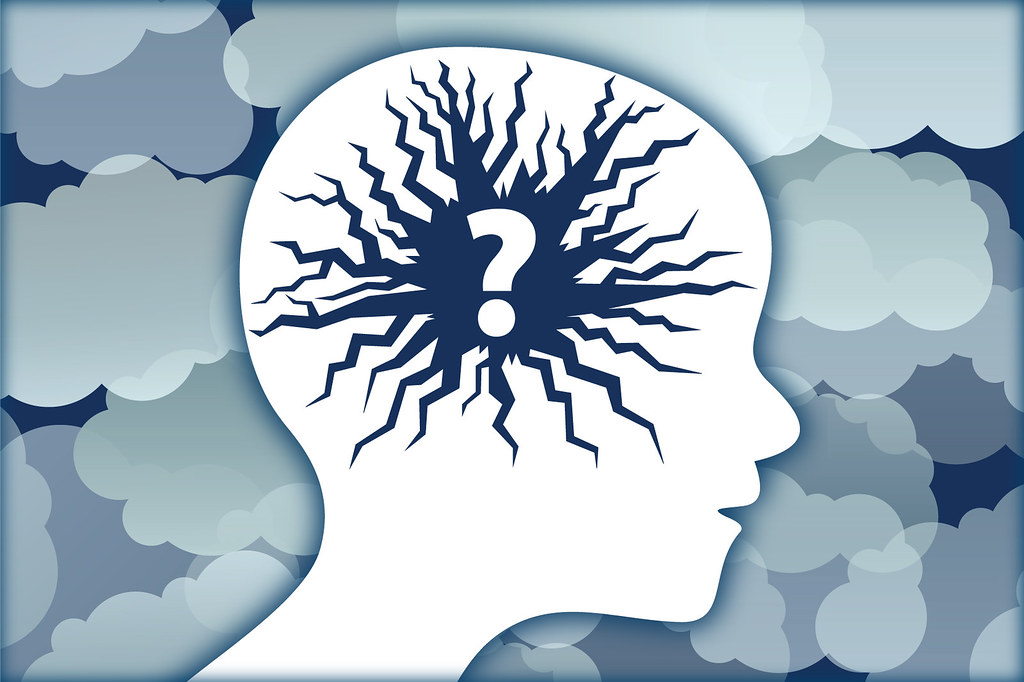Are you tired of making decisions only to find out later that you were influenced by hidden biases? Have you ever wondered why you sometimes make choices that are not in line with your actual goals or values? It’s time to break free from the shackles of common decision-making biases and take control of your choices. In this article, we will delve deep into the realm of psychological pitfalls and equip you with key strategies to avoid them. By understanding and harnessing these strategies, you can make smarter and more rational decisions, leading to a more fulfilled life. So, read on and unlock the secrets to overcoming common decision-making biases that may be holding you back.
Understand the Influence: Exploring the Psychological Biases that Cloud Decision-Making
When it comes to decision-making, it’s crucial to recognize the powerful influence that psychological biases can have on our choices. These biases, deeply ingrained in human nature, tend to cloud our judgment, leading to potentially irrational or flawed decisions. Exploring and understanding these biases is paramount in order to make informed and objective choices.
One such bias is the confirmation bias, which compels individuals to seek out information that aligns with their preexisting beliefs while dismissing contradictory evidence. This tendency can hinder effective decision-making by preventing us from considering alternative viewpoints and limiting our ability to see the bigger picture. By acknowledging and addressing this bias, we can strive for a more open-minded approach, leading to more comprehensive and well-rounded decisions.
- Availability Bias: This bias occurs when individuals heavily rely on the information that is easily retrievable from memory, rather than considering a wider range of available data. It can lead to skewed perceptions and inaccurate judgments, as our minds tend to place greater weight on recent or emotionally charged events.
- Anchoring Bias: This bias refers to our inclination to rely heavily on the first piece of information we receive when making decisions, often allowing it to dictate subsequent judgments. This can result in a narrow focus and an underestimation of other relevant factors, ultimately distorting our decision-making process.
- Confirmation Bias: As mentioned earlier, the confirmation bias drives us to seek information that confirms our existing beliefs or opinions, while dismissing or downplaying contradictory evidence. This bias can be particularly problematic as it prevents us from considering alternative perspectives and hinders our ability to make unbiased decisions.
By familiarizing ourselves with these biases and their potential impacts, we can strive to adopt a more thoughtful and analytical approach to decision-making. Recognizing when these biases may be at play allows us to actively counteract them and make more informed and objective choices. Let’s explore these psychological biases further and work towards fostering a mindset that facilitates clearer and more effective decision-making.

Objective Evaluation: Techniques to Overcome Confirmation Bias and Escape the Echo Chamber
As individuals immersed in a world of information overload, it’s imperative that we strive for objectivity in our evaluations. While confirmation bias and the echo chamber effect can hinder our ability to see beyond our own perspectives, there are techniques we can employ to break free from these constraints. By implementing the following strategies, we can broaden our understanding, challenge our beliefs, and arrive at more objective evaluations:
- Seek diverse sources: Deliberately expose yourself to a range of viewpoints and opinions through various media channels. Consider exploring alternative news outlets, opinions from conflicting ideologies, and engaging with individuals who hold differing perspectives. This will provide a well-rounded perspective and empower you to challenge your own preconceived notions.
- Question assumptions: Develop a healthy skepticism towards information that aligns too closely with your existing beliefs. Encourage critical thinking by actively questioning assumptions, considering multiple explanations, and seeking evidence to support or challenge those assumptions. This will help you avoid falling into the trap of confirmation bias.
Moreover, it’s crucial to remember that objective evaluation requires an open mind, intellectual humility, and a willingness to revise our beliefs in light of new evidence. By incorporating these techniques into our daily lives, we can escape the echo chamber, bridge divides, and arrive at more accurate and impartial evaluations of the world around us.
Emotional Intelligence: Harnessing Rational Thinking to Avoid Escalation of Commitment
When faced with challenging situations, it’s all too easy to let our emotions take control, leading us down a path of escalating commitment. However, by harnessing the power of emotional intelligence and rational thinking, we can rise above these pitfalls and make sound, informed decisions.
Emotional intelligence plays a crucial role in understanding and managing our emotions effectively. By being aware of our emotions and how they influence our thoughts and actions, we can take a step back and evaluate a situation objectively. This self-awareness empowers us to make rational choices, considering all the facts and potential consequences.
- Encourage reflection: Take the time to reflect on past experiences where escalation of commitment occurred and identify the emotions that fueled these decisions. Recognizing patterns can help us break free from the cycle.
- Seek diverse perspectives: When faced with a difficult decision, actively seek out different viewpoints. Engaging in open discussions and debates can provide us with a broader understanding and uncover alternatives that may have otherwise been overlooked.
- Assess risks and benefits: Before committing further resources or effort to a project or idea, critically assess the potential risks and benefits. Consider both short-term and long-term implications to ensure a well-rounded evaluation.
By leveraging emotional intelligence and rational thinking, we can navigate complex situations with clarity and avoid the trap of escalating commitment. In doing so, we empower ourselves to make sound decisions based on facts, ultimately leading to greater success and personal growth.
The Power of Perspective: Mitigating Cognitive Biases through Diverse Inputs
In a world where information overload has become the norm, it is crucial to recognize the influence of cognitive biases on our decision-making processes. These biases, often unconscious, can hinder our ability to see the bigger picture and make sound judgments. However, by embracing diverse inputs, we hold the key to unleashing the power of perspective and conquering these biases.
Diverse inputs open the door to an array of viewpoints and fresh ideas, enabling us to escape the confines of our own limited perspectives. By actively seeking out and considering a broad range of voices, we can challenge our own biases and develop a more complete understanding of complex issues. It is through this diversity that we become better equipped to make informed decisions that maximize benefits for all stakeholders involved.
- Enhanced Problem Solving: Diverse inputs foster creativity and innovation by breaking free from traditional modes of thinking. It allows us to explore unconventional approaches and find solutions that others might have overlooked.
- Reduced Confirmation Bias: When we surround ourselves with like-minded individuals, confirmation bias can easily take hold, reinforcing our existing beliefs. Embracing diverse inputs challenges our preconceptions and encourages critical evaluation of different perspectives.
- Inclusive Decision-Making: By incorporating diverse inputs, we ensure that decisions are not based solely on the perspectives of a select few. This promotes inclusivity and avoids marginalizing minority voices, leading to fairer outcomes.
In an age where cognitive biases can wield immense influence, embracing diverse inputs is not just a choice, but a necessary step towards mitigating their impact. By valuing and actively seeking out different perspectives, we can harness the collective power of our diverse world to make more informed decisions, drive positive change, and create a future that benefits us all.
Insights and Conclusions
In conclusion, it is undeniable that our decision-making processes are often hindered by an array of psychological pitfalls. These biases, although deeply ingrained in our thinking patterns, can significantly undermine the quality of our choices and the outcomes we strive for. However, armed with an understanding of these pitfalls and employing key strategies to counteract them, we can enhance our decision-making skills and make better judgments.
By recognizing the anchoring bias, we can refrain from fixating on initial information and ensure a more comprehensive evaluation of alternatives. Turning a critical eye towards confirmation bias enables us to overcome the tendency to seek out information that validates our preconceived notions, thus fostering more objective analysis.
Escaping the clutches of the availability bias encourages us to consider a broader range of perspectives, avoiding the pitfalls of relying solely on easily accessible or recent information. Similarly, combating the sunk cost fallacy frees us from being trapped by past investments or decisions, empowering us to make choices based on their current merits instead.
A vigilant avoidance of the framing effect prompts us to strive for fairness and evaluate decisions from multiple angles, rather than being swayed by the way a choice is presented. Lastly, acknowledging the influence of the overconfidence bias drives us to approach our decisions with humility, seeking out additional information and considering alternative perspectives.
It is crucial to remember that these psychological pitfalls are not insurmountable obstacles, but rather challenges that can be overcome. By familiarizing ourselves with the strategies to sidestep these biases, we can fortify our decision-making processes and experience the positive impact they can have on our lives.
So let us commit ourselves to being mindful decision-makers, rigorously questioning our thinking patterns, and striving for robust and unbiased choices. Only then can we maneuver through the labyrinth of psychological pitfalls, confidently making decisions that serve our best interests and propel us towards a more fulfilled and successful future.
Psychology has a long history of studying decision-making, and researchers have identified certain psychological pitfalls that can affect decision-making. In this article, we review some of the most common cognitive biases that can lead to suboptimal decisions, and provide key strategies to help individuals avoid these biases.
The first type of cognitive bias is confirmation bias, the tendency to seek out and pay more attention to information that confirms existing beliefs. This tendency often leads to a narrow focus on evidence that supports an existing belief, while disregarding or discounting other evidence that might contradict it. To avoid confirmation bias, researchers suggest focusing on evidence from a variety of sources, being open to changing one’s views in the face of new evidence, and considering logically contradictory evidence.
A second type of cognitive bias to avoid is anchoring bias, the tendency to rely too heavily on the first piece of information encountered when making a decision. This bias can lead to decisions that are rooted more in the initial bit of information gathered than in sound logic. To avoid anchoring bias, researchers suggest gathering information at multiple points in the decision-making process, considering multiple options, and being aware of the potentially more influential aspects of a decision.
Finally, many people also fall into the trap of binary thinking, a bias towards seeing two choices as an either/or decision. This type of cognitive bias can lead to overly narrow decisions that disregard important nuances. To help overcome binary thinking, researchers suggest taking the time to consider a variety of options, exploring possible solutions beyond the binary, and being open to creatives solutions.
Psychological pitfalls can have a negative impact on decision-making, but by following the strategies outlined in this article – being conscious of confirmation bias, anchoring bias, and binary thinking – individuals can better avoid these decision-making biases and make more effective decisions.

